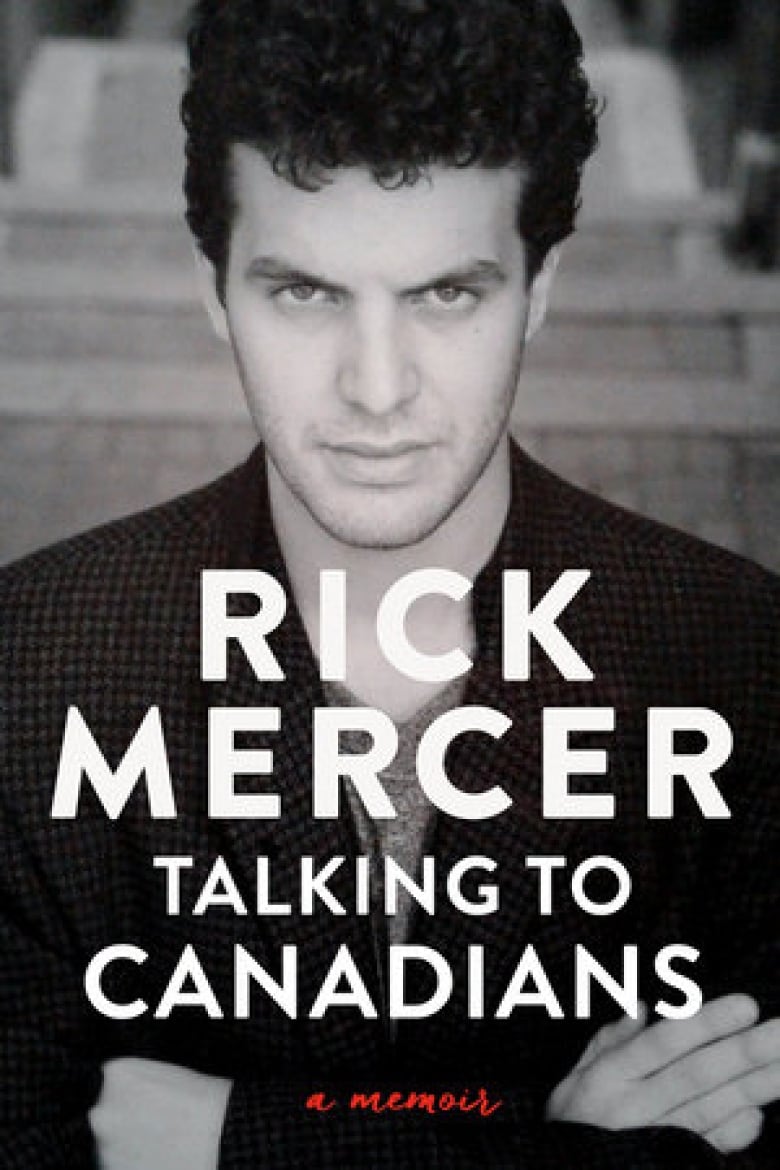Rick Mercer reflects on poking fun at politicians, 'cancel culture' — and Googling how to write a memoir
The Canadian comedy icon answered questions from Cross Country Checkup callers


Stuck at home like many Canadians at the start of the pandemic, Rick Mercer decided it was the right time to write a memoir.
"If you're in show business, it was very hard to work from home. You could be unemployed from home, but work from home, not so much," he told Cross Country Checkup host Ian Hanomansing. "And so I had this notion of writing this book — and it saved me."
But like many learning to bake bread under lockdown, he had to turn to the internet for advice.
"I literally Googled how to write a memoir because I had no idea."
Mercer's memoir, Talking to Canadians, was released on Nov. 5.
The former This Hour Has 22 Minutes star shared stories of writing his new memoir, as well as reflections on his decades-long career in comedy Sunday on Checkup's Ask Me Anything where he took questions from callers.

Thoughts on 'cancel culture'
In an emailed question, listener Randy Weir asked how Mercer navigates contentious issues and so-called cancel culture surrounding controversial media figures.
Mercer said the term is loaded, noting that it typically applies to figures like Bill Cosby, who have been accused of crimes, and others who face controversy but continue to have thriving careers.
But the comedian says there have always been groups who attempted to ban content, like books and films, because they didn't like the message.
"That was always, always coming from the right — always coming from the conservative right and often the religious right, and nobody else thought of it," he said. "Now we have people on the so-called progressive left side that [have] borrowed from that playbook."
Mercer says he's uncomfortable with calls to remove content or cancel events by controversial figures.
"I don't care if I do a show and you don't like it. I don't care if you email me and say you think I'm an idiot. It becomes a problem when you say you shouldn't be allowed to have a show, or you shouldn't be allowed to do that rant."
Asked in a separate question how he approaches taboo subjects through comedy "in the right way," Mercer said he worries too many public figures are stuck in an echo chamber.
"They have their fans who agree with them and their point of view, and that's the only people who are watching, whereas I would much prefer a much wider audience that crosses all spectrums," he told Hanomansing.
Power of humour
Pointing fun at politicians and political systems has played a key role in Mercer's comedy. Adam Greenberg asked when Mercer realized that humour and satire could be a "catalyst for change."
Mercer explained his love for blending politics and comedy became clear when he launched his one-man show.
"It was entirely about the Meech Lake Accord — which sounds patently ridiculous that anyone would do a one man show about the Meech Lake Accord," he said. In 1987, then-prime minister Brian Mulroney proposed an agreement between the federal government and provinces to amend the constitution, which would give provinces more power and declare Quebec a "distinct society." The accord never came into effect.
"But that's what I did, and it certainly captured the imagination of the king in the sense that the press gallery started paying attention and the political class started paying attention."

The idea that his work could change things, however, is an idea Mercer bristles at.
"Sometimes you can change things, but I don't think my job is ever to sit back and think, 'Oh, I can change this or I can make this happen, or I can move the needle on this issue,'" he said.
"I think if you started doing that, that would be a bit too much navel gazing and probably not a good idea."
Comedy that punches up
From interviewing former prime minister Jean Chretien in a Harvey's restaurant to skinny dipping with Bob Rae, Mercer was seemingly able to get just about anyone on camera in his hit show, Rick Mercer Report.
Part of the magic, he explained, was because Mercer and the show's producers consciously decided to celebrate its guests.
"I think that people trusted the show. They knew that, you know, nobody came out looking bad," he said.
Many of the show's guests were regular Canadians unaccustomed to being on camera — and even the famous ones ran the risk of saying something off colour.
"Everyone has the capacity — especially if there is a feeling that maybe they're trying to be funny — they can just blurt something out that the minute it's out of their mouth, they regret saying it," he said.
Never once did they put those slip-ups on air, and that built trust among guests and offered Mercer the ability to phone up practically any Canadian to be on the show, he said.
"We weren't there to pull a fast one on them, and I think people, by osmosis, knew that they would be taken care of if they came on the show and that's why we had such great access."
Hear the full hour-long Ask Me Anything with Rick Mercer on CBC Listen.
Written by Jason Vermes. Produced by Steve Howard.

